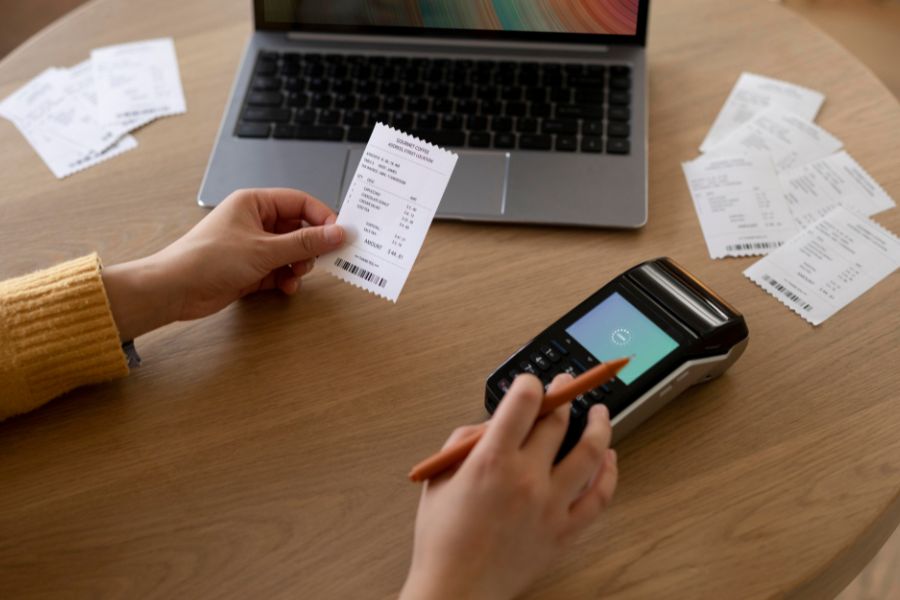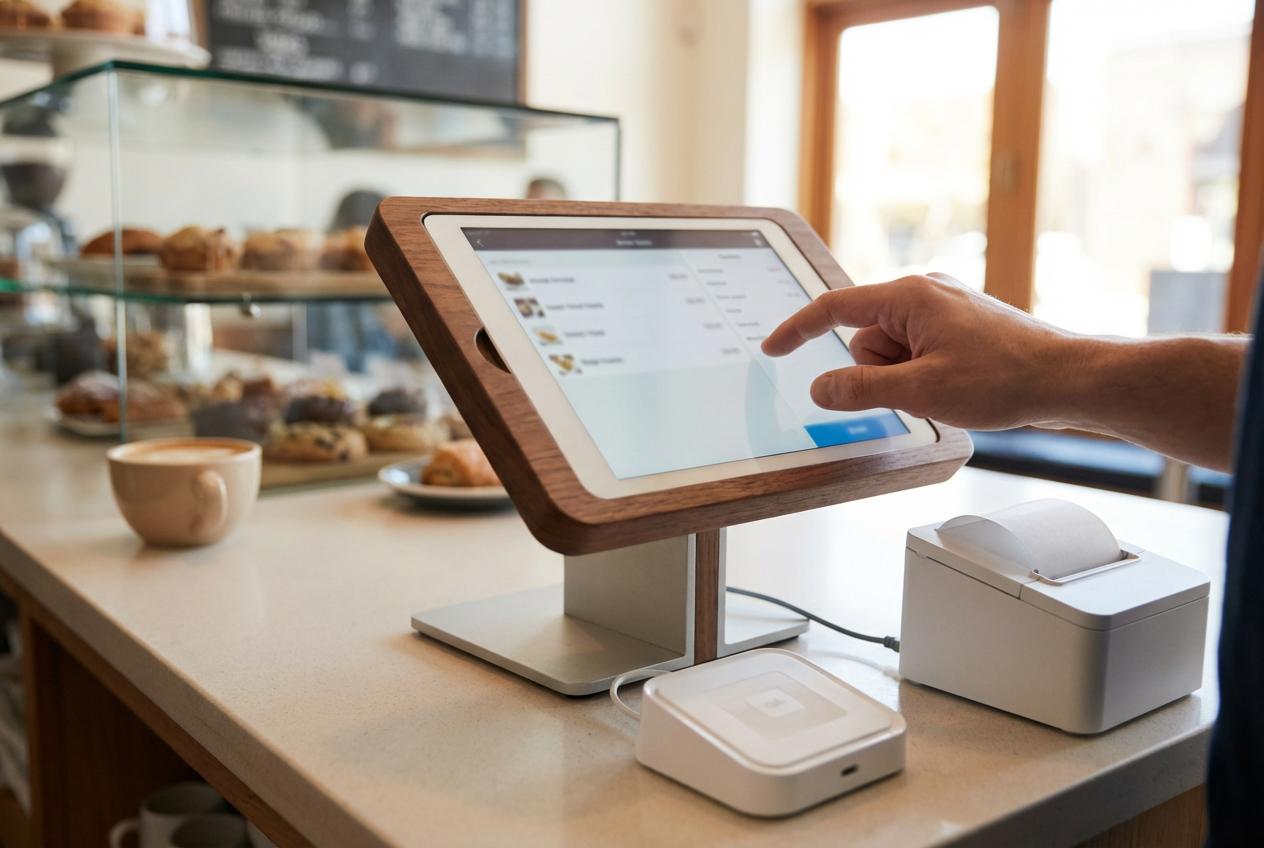Cin7 has positioned itself as a feature-rich solution designed to connect inventory, sales, and supply chain management under one system. Yet, while its capabilities appeal to certain mid-sized and enterprise retailers, its cost structure, complexity, and setup requirements may not suit every business model.
This article from ConnectPOS provides an in-depth review of Cin7 POS, examining its strengths, limitations, and overall fit for modern businesses and help decision-makers evaluate whether Cin7 is the right choice or if a more practical solution, like ConnectPOS, may be better aligned with their needs.
Highlights:
- Cin7 POS combines POS, inventory, purchasing, and light manufacturing features like BOMs and assemblies, making it suitable for small businesses shifting from spreadsheets.
- Businesses value Cin7’s real-time inventory tracking and omnichannel support but often face challenges with complexity, pricing, and customer support.
- For retailers seeking a more user-friendly and cost-effective solution, ConnectPOS provides a practical alternative with strong omnichannel capabilities and flexible deployment.
What Is Cin7 POS? Core Features And Capabilities
Cin7 POS is a cloud-based point-of-sale system that integrates with Cin7 Core inventory management to manage sales, stock, and customer data across multiple channels and locations in real-time. It allows businesses to process sales, manage inventory levels, track customer loyalty, and even fulfill orders from a mobile app, ensuring that stock is allocated and updated instantaneously as sales occur.
By 2032, the global POS software market is projected to reach USD 74.7 billion, with on-premise deployments contributing USD 51.09 billion and cloud-based solutions accounting for USD 23.61 billion. As businesses shift towards cloud-based platforms, Cin7 POS emerges as a strong contender, providing centralized inventory, order, and sales management through its cloud-driven system.

Cin7 POS is an inventory management platform that covers sales, purchasing, and manufacturing. It works as a light ERP system for small businesses moving away from spreadsheets. The system includes an integrated POS and supports omnichannel selling for both physical and online retailers. It tracks inventory in real time across different locations and supports manufacturing needs such as BOMs(Bill of Materials) and assemblies.
Inventory Management
Cin7 POS is a cloud-based system that records inventory data in real time across different locations. It updates across sales channels every five minutes, giving visibility into stock levels and sales throughout the day. This speed of information helps businesses running lean methods such as just-in-time inventory, since replenishment orders can be placed before stockouts occur.
Order fulfillment is highly flexible in Cin7. Online orders can be routed to the warehouse that best matches business needs, and automation rules can be created to direct orders to the closest location with stock available. Routing can also be tailored by region, shipping method, stock status, or ecommerce code, giving retailers control over how and where orders are fulfilled.
Automation extends to many other processes. Cin7 can calculate tax rates in local currencies, generate barcodes, and print shipping labels without manual input. Rules can also be applied so that when a store location runs low on stock, replenishment shipments are triggered from the warehouse. These functions can be kept simple for a single location or scaled to cover many channels, products, and customer groups, making the platform suitable for growing businesses.
B2B Ecommerce
Every Cin7 POS plan includes ecommerce functions designed for business-to-business clients. Retailers and wholesalers can set up a platform where buyers view products, warehouse stock levels, pricing, and other details. The site can carry brand elements such as logos, banners, and a custom web address.
Pricing can be tailored for each client. Once a pricing arrangement is set, the system displays it directly on the buyer’s portal. Clients see the exact cost of products assigned to them, which removes extra calculation steps and creates clarity during the order process.
►►► Optimal solution set for businesses: Multi store POS, Next-gen POS, Inventory Management Software (MSI), Self Service, Automation, Backorders
Light Manufacturing
Cin7 POS supports companies that need both inventory and manufacturing in one system. Sales orders and quotes can be generated using material costs entered in advance. For custom jobs, businesses can base new quotes on standard products or past orders, saving time in preparing documentation.
Bills of materials can be created with detailed input, including accurate waste tracking. This allows for precise cost-per-unit calculations that reflect actual production outcomes rather than rough estimates.
Reporting
Inventory software provides insight that manual tracking cannot match, and Cin7 gives businesses a wide range of reporting options. Data can be pulled on sales, individual products, categories, customers, employees, and more. Reports can be customized through a drag-and-drop dashboard, which supports both broad overviews and granular detail.
One reporting tool many businesses use is the Inventory Success Quadrant. This compares gross profit against days in stock, highlighting which items are contributing and which are holding resources. The report can be filtered by category, price, suppliers, and other variables.
Cin7’s reporting functions give management a clear view of performance and help guide future decisions based on data rather than assumptions.
Ease of Use
Cin7 POS brings together inventory, order management, and sales into a single system, making it attractive for retailers aiming to centralize operations. Its ability to connect with various sales channels and support detailed inventory tracking is often highlighted as a key advantage. Businesses with complex supply chains or multiple stores benefit from the visibility and control it provides.
On the other hand, the platform’s steep learning curve, pricing structure, and sometimes overcomplicated workflows can be a hurdle, especially for smaller businesses. While its depth of features suits enterprises with advanced needs, those looking for a more accessible and straightforward solution may find Cin7 less practical compared to options like ConnectPOS.
Cin7 POS Pros And Cons For Business
Cin7 POS attracts businesses looking for depth in functionality, particularly those managing complex operations with wholesale and multi-channel needs. At the same time, its strengths come with trade-offs from ranging from cost considerations to a steeper learning curve. Evaluating both the benefits and drawbacks helps decision-makers determine if Cin7 aligns with their operational requirements
Cin7 POS Pros
Cin7 POS is designed for retailers who need more than just a checkout system. It integrates inventory, sales, and customer management into one connected platform. With real-time stock visibility, automated discount handling, and strong reporting tools, it helps businesses stay in control while improving the shopping experience.
- Integrated point-of-sale system
- Built-in B2B ecommerce capabilities
- Extensive functionality with 450+ integrations
- Warehouse management and light manufacturing support
- Comprehensive onboarding assistance
- Native EDI solutions for streamlined supplier communication
- Advanced reporting and demand forecasting
Cin7 POS Cons
While Cin7 POS provides advanced inventory and retail management, it may not be the best fit for every retailer. The system’s pricing and complexity can challenge smaller businesses or those with limited technical resources.
- Steep learning curve for new users
- Limited support once onboarding is complete
- Pricing details lack transparency
- No RFID tracking for inventory
- Missing enterprise-grade asset tracking
- Lacks specialized tools for niche industries
ConnectPOS: A Practical Alternative To Cin7 POS
Cin7 POS has built a reputation in the retail software space as an all-in-one system for inventory and sales management. While it suits certain mid-sized retailers, many businesses find its complexity, cost structure, and learning curve too heavy for their operational needs. ConnectPOS emerges as a practical alternative, particularly for companies looking for clarity, scalability, and retail-driven functionality without being locked into a rigid ecosystem.
ConnectPOS was built with omnichannel retail at its core, bridging online and offline channels in real time. It helps businesses avoid operational bottlenecks by connecting POS transactions, inventory, customer data, and reporting into one platform while maintaining the flexibility to adapt to diverse retail environments. Unlike systems that over-extend into ERP territory, ConnectPOS stays focused on retail excellence, making it suitable for growing chains that want stability without unnecessary overhead.
Why ConnectPOS Stands as a Practical Alternative
- Transparent pricing model: Retailers often struggle with hidden costs in Cin7’s subscription tiers. ConnectPOS provides packages aligned with store size and operational needs, making long-term planning far more predictable.
- Tailored for omnichannel retail: ConnectPOS integrates directly with leading eCommerce platforms like Shopify, Magento, and BigCommerce. This gives businesses a clear connection between online orders and in-store transactions without extra customization fees.
- Real-time inventory synchronization: Instead of reconciling discrepancies across systems, stock levels are updated instantly across sales channels, warehouses, and POS terminals. This prevents overselling while providing managers with accurate data at all times.
- Adaptability for different retail models: From small boutiques to multi-store chains, ConnectPOS scales smoothly. It allows businesses to expand operations without rebuilding the tech stack from scratch.
- Retail-focused user experience: Staff adoption is a common barrier in POS rollouts. ConnectPOS is designed for simplicity at the front-end, making training shorter and reducing day-to-day friction for retail staff.
- Global-first infrastructure: With a presence in markets across Asia, Europe, and North America, ConnectPOS supports regional compliance and payment needs, giving international retailers a system they can deploy confidently across borders.
FAQs cin7 POS
What types of businesses use Cin7 POS?
Cin7 POS is used by retailers and wholesalers that manage stock across different locations, warehouses, or sales channels. It is suitable for apparel, consumer goods, electronics, and specialty retail where inventory control and multi-channel selling are priorities.
How does Cin7 POS differ from basic POS systems?
Unlike simple POS tools that only process transactions, Cin7 integrates with inventory control, warehouse management, supplier coordination, and online sales channels. It is designed for retailers who want a connected system rather than a standalone cash register.
Why is ConnectPOS seen as a practical alternative to Cin7 POS?
ConnectPOS appeals to businesses looking for simpler setup, clear pricing, and ongoing support. It covers core sales and inventory needs without the steep learning curve or complex costs tied to Cin7. Retailers that prioritize real-time synchronization across physical stores and online channels often find ConnectPOS to be the more practical choice.
Conclusion
Cin7 POS provides a comprehensive toolkit that can benefit businesses with complex inventory and supply chain demands, but its learning curve and pricing may deter smaller or fast-growing retailers seeking agility. The decision ultimately depends on how well its strengths match your operational requirements.
For businesses that prefer a solution with easier implementation, transparent pricing, and strong multi-store and omnichannel capabilities, ConnectPOS stands out as a practical alternative. See how ConnectPOS supports the next stage of your retail expansion, contact our team today.
►►► Optimal solution set for businesses: Shopify POS, Magento POS, BigCommerce POS, WooCommerce POS, NetSuite POS, E-Commerce POS



